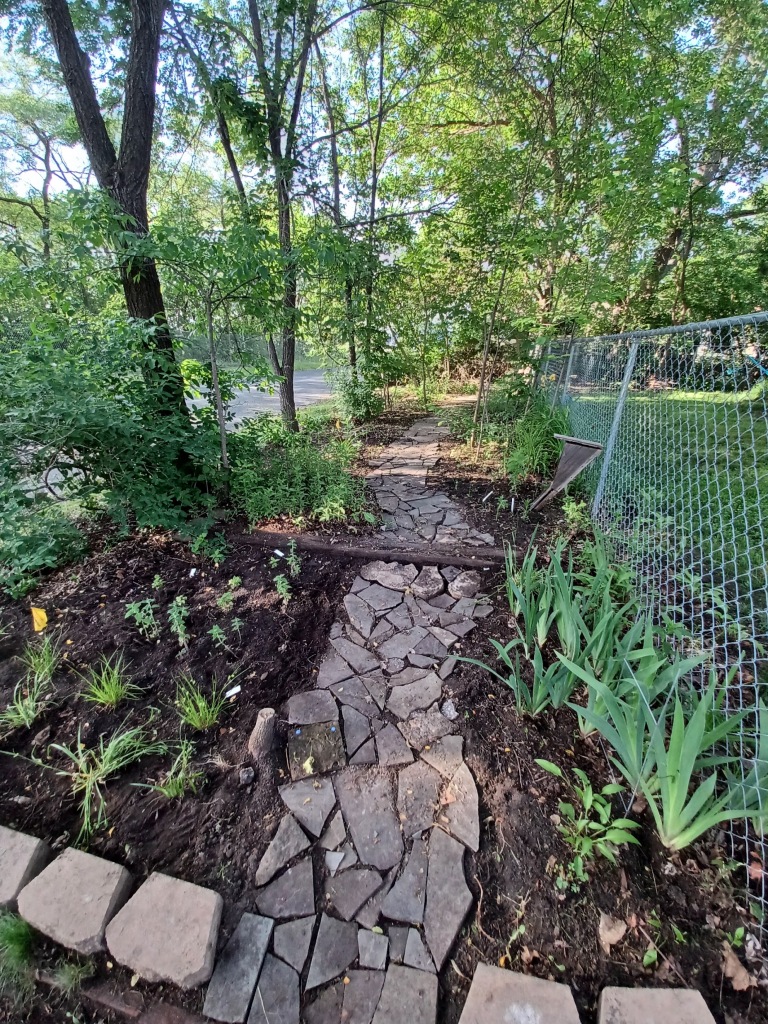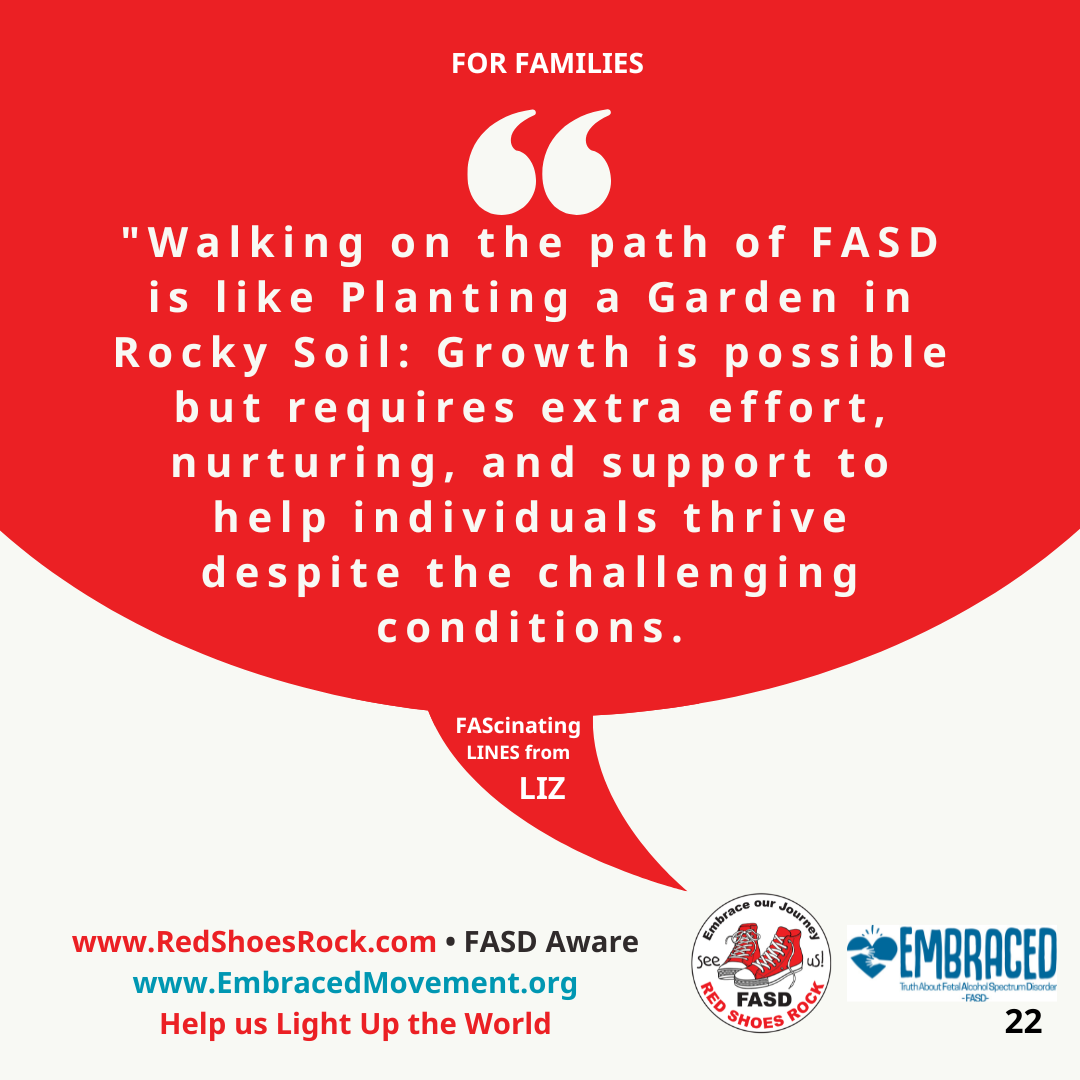Raising a child with Fetal Alcohol Spectrum Disorder (FASD) is akin to planting a garden in rocky soil. Both processes demand patience, understanding, and extra effort to ensure that growth is nurtured and potential is realized despite inherent challenges.

When planting a garden in rocky soil, the first task is to assess and prepare the ground. This involves removing stones, tilling the soil, and adding nutrients to create a conducive environment for plants to thrive. Similarly, understanding FASD requires a thorough assessment of the child’s unique needs and strengths. This might involve seeking expert diagnoses, learning about the disorder, and creating a supportive home environment tailored to those needs.
In both scenarios, patience is crucial. Plants in rocky soil grow slower and may face more obstacles, requiring consistent care and attention. Children with FASD also develop at their own pace and often encounter various hurdles in learning and behavior. Celebrating small milestones, whether it’s the first bloom in a rocky garden or a new skill acquired by a child, is essential for fostering a positive outlook and encouraging ongoing progress.
Consistency in care is another parallel. Just as a gardener must regularly water, weed, and protect their plants, caregivers of children with FASD need to provide ongoing support, structure, and love. This might involve maintaining routines, implementing behavioral strategies, and advocating for the child’s needs in educational and social settings.
Moreover, both gardens and children with FASD benefit immensely from external support. A gardener might use tools, fertilizers, and expert advice to enhance growth, while caregivers can rely on therapies, support groups, and educational resources to bolster their child’s development. Surrounding oneself with a network of knowledgeable and compassionate individuals can make a significant difference.
Ultimately, both rearing a child with FASD and tending a garden in rocky soil require a commitment to nurturing growth against the odds. The journey is filled with challenges, but the rewards—a thriving garden or a flourishing child—are profoundly fulfilling, reflecting the love, dedication, and resilience invested in the process.
TODAY’S NOTE: “My mom has a garden path made of broken slate. That is the story of my life.” – In Solidarity, Liz

A wonderful metaphor and well said, Jodee. Often a hard journey but so rewarding when the effort bears flowers and fruit.
LikeLike